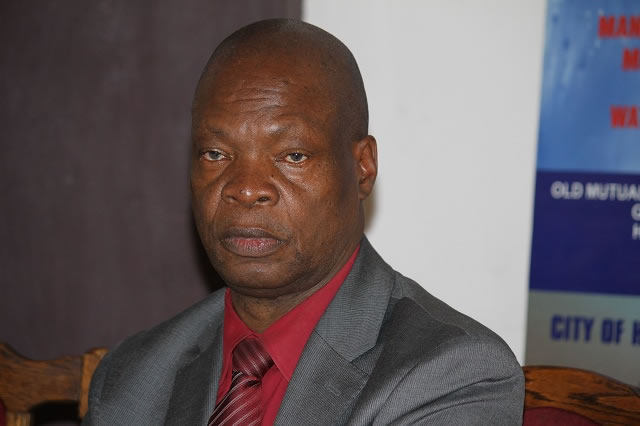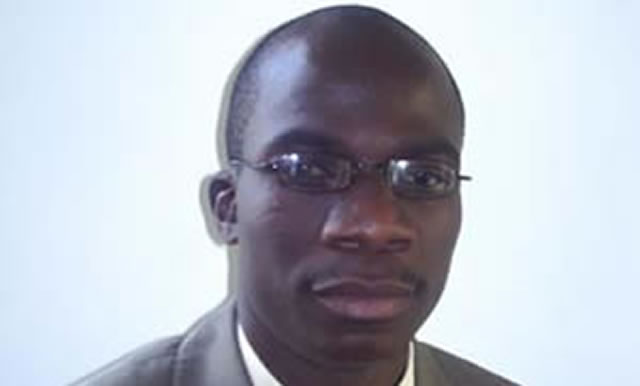Shortage of medical specialists hits Zim

Paidamoyo Chipunza Health Reporter
NEARLY half the posts for specialist medical personnel in public health institutions are vacant owing to Government’s failure to offer attractive conditions of service. This development, compounded by sanctions which constrained Government’s capacity to fund social services, has compromised the quality and efficiency of service delivery.
Statistics compiled by a local consulting group — Proserve — on the state of human resources in Government hospitals as of July this year show that 470 posts from an establishment of 1 117 were vacant.
Proserve managing director Mr Emmanuel Jinda said there were only seven specialist doctors at major referral hospitals out of an establishment of 26 as of July this year.
He said the staff complement at provincial hospitals was even worse with only four specialists, instead of the required 140.
There is only one pathologist instead of the required six to serve the whole country.
Nearly half the posts for Government Medical Officers are said to be vacant with only 105 in post at referral institutions. Most of the posts for medical officers at provincial hospitals are, however, filled with only 36 posts vacant out of an establishment of 260.
There are several posts vacant for laboratory technicians, laboratory scientists and junior register (middle level doctors).
Commenting on the statistics, Health and Child Care Minister Dr David Parirenyatwa, said unfilled posts could be even higher than those released by Proserve.
“The establishments that are in use at the moment were compiled in the 1980s and more posts could be vacant because of increased workload,” Dr Parirenyatwa said.
He attributed the shortages to poor working conditions, coupled with low salaries discouraging professionals to work for Government.
These posts, he said, have always been vacant.
“What is needed is a meaningful investment in the health sector, enough to lure skilled and experienced personnel to work for the ministry,” he said.
Dr Parirenyatwa said if conditions of service and salaries are not improved, the country will continue losing professionals to other countries.
Patients interviewed at various institutions in Harare, said the shortage of specialists delayed medical procedures and in some cases resulted in complication of a patient’s condition.
“My daughter was involved in an accident, but it took her almost a month to be operated on as we were told there is a long waiting list of other patients with similar and worse conditions,” said Mrs Emma Kagoro of Harare.
Mrs Kagoro said nurses told them that the waiting list was long because doctors who could perform the particular operation were few and were failing to cope with demand.
Delayed processes in laboratory specimens have also been attributed to shortages in technicians and scientists, also impacting negatively on diagnosis of a patient’s condition.
Without proper diagnosis, a patient cannot undergo full treatment. Pathologists carry out post-mortems on bodies to determine the cause of death. Their shortage has also affected quick conclusions to murder cases and other complicated cases needing some investigations.
Meanwhile, statistics also show that the staff complement for registered general nurses at referral hospitals was, however, filled with an excess of 63 in post.
Health Services Board chairman Dr Lovemore Mbengeranwa said despite the vacancy freeze, all nursing establishments were full. He said although nursing establishments were full, Government still needed twice as many nurses as those in service.
“Our current nursing establishment is full, so we definitely need to increase our staff establishment,” he said.
Dr Mbengeranwa said although there were few unemployed nurses as of now, all those graduating were not guaranteed of employment.
He said the current establishment for nurses was about 25 000 yet the actual need averaged 50 000, meaning nurses in post were working twice as much as they were supposed to.
Zimbabwe Nurses Association president Mrs Regina Smith said nurses were working for an average of 11 hours a day, instead of the eight hours stipulated by labour laws.
She said instead of attending to two patients at any given time, they were having to look after an average of 30.
“This is not good news for the nursing profession as it compromises the quality and efficiency of healthcare given to patients,” said Mrs Smith.
She said her association continued to lobby for revision of the nursing establishment in Zimbabwe to bring back sanity in public institutions.
Most Zimbabweans seek treatment from Government institutions. However, the country’s health sector faces numerous other challenges apart from the shortage of skilled professionals.
Most of the infrastructure is dilapidated, while many hospitals lack functional laundry machines, kitchen equipment and boilers and a lack of essential medicines and commodities.











Comments